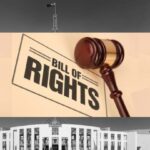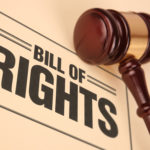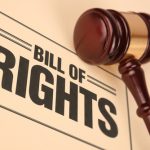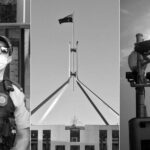RIP Freedom of Speech

Many Australians believe that we can freely express what we think, without fear of prosecution. Indeed, freedom of speech has been part of our democratic tradition for generations.
But a string of recent laws have chipped away at our right to say what we think.
For example, those who have been the subject of police ‘anti terrorism’ raids cannot speak out about it, even if the raids were completely unjustified and they weren’t charged any offence. Indeed, anyone who speaks out about their unfair treatment, and journalists who report about it, can be criminally prosecuted and sent to prison.
And new laws which will come into force shortly mean that just about anyone working in detention centres is forbidden from speaking out against abuses that they see taking place. Even doctors, teachers and scientists will face prison under the Defence Trade Controls Act.
And if someone decides to break their silence anonymously by speaking to a journalist – well, that’s taken care of, too. New meta-data laws seamlessly connect to make it easy to work out who spoke to journalists. Protection for whistleblowers in Australia is indeed far lower than in most other developed countries, and journalists face criminal prosecution and imprisonment for not revealing their sources in a range of circumstances.
Which raises the question: Do we even have freedom of speech in Australia?
Freedom of speech
Australia is one of the few developed countries that does not have a Bill of Rights.
Although the ACT and Victoria both have Bills of Rights, any contradicting Commonwealth law will prevail. If you flick through the Australian Constitution you’ll be disappointed to learn that it does not explicitly guarantee the right to free speech, although judges have implied certain rights into the Constitution over the years.
Implying freedom of political communication
Section 7 of the Constitution says that the Senate should be composed of senators “directly chosen by the people of the State”, while section 8 similarly states that the House of Representatives “shall be composed of members directly chosen by the people.”
In the case of the Australian Capital Television v Commonwealth (1992) , the High Court used these two provisions to find that the Constitution brought into existence a system of government where the people directly elect those who are in power.
This means that members of parliament are representatives of the people, and need to be chosen by, and accountable, the public. This, in turn, necessitates freedom of political communication.
Freedom of political communication is the only way that a citizen can:
“communicate his or her views… criticize government decisions and actions, seek to bring about change, call for action where none has been taken and in this way influence the elected representatives… Absent such a freedom of communication, representative government would fail to achieve its purpose, namely, government by the people through their elected representatives.”
The freedom is not restricted merely between the public and government – it extends to political communications between individuals and groups within the community.
People cannot make informed decisions unless they have access to information, and public discussion is seen as an essential element of our political process.
Limitations to freedom of speech
Of course, freedom of political communication is not completely unfettered – and this is not a bad thing. Hate speech and defamation are examples of what many would consider to be beyond the limits of free speech.
But not all encroachments are this clear cut, so what is the test for deciding whether or not certain communications can be banned?
The test is contained the case Lange v Australian Broadcasting Corporation (1997), also known as the “Political Free Speech Case.” The judges in that case ruled that the curtailment of the freedom was allowed if the enacted law satisfied a legitimate purpose and fulfilled two conditions:
- It is compatible with the maintenance of the representative and responsible government mandated by the Constitution, and
- It is “reasonably appropriate and adapted” to the fulfilment of a legitimate purpose.
The judges in Lange found that “the freedom of communication which the Constitution protects is not absolute. It is limited to what is necessary for the effective operation of that system of representative and responsible government provided for by the Constitution.”
Would the government’s new laws pass the test?
The government’s new laws prevent people from speaking out about a range of issues, including anti-terrorism raids and the treatment of people in detention centres.
So are these laws “necessary for the effective operation” of the current system?
One could certainly argue that they are not. Indeed, it is hard to see how such laws are necessary to the functioning of the current system.
Rather, the treatment of asylum seekers and the conduct of police during raids that are ostensibly for the purpose of preventing terrorism are relevant to discourse on public affairs and political discussion. There appears to be a strong argument that individuals have a right to speak up about misconduct by government agencies, and to receive and debate such information – and that the new laws unjustifiably infringe upon this freedom to communicate matters of political relevance.
How can bad laws get overturned?
Laws are invalid if they are inconsistent with the Constitution, and there are generally two ways to repeal such laws. The first is by parliament, which is highly unlikely as parliament recently passed the laws. The second is by the High Court of Australia, which can strike them down for being invalid.
But the High Court cannot simply declare laws to be invalid – it must wait until a case comes before it. This means that until someone takes their case all the way to the High Court, which can take a long time and be extremely expensive, the judicial system will need to treat the laws as valid.






